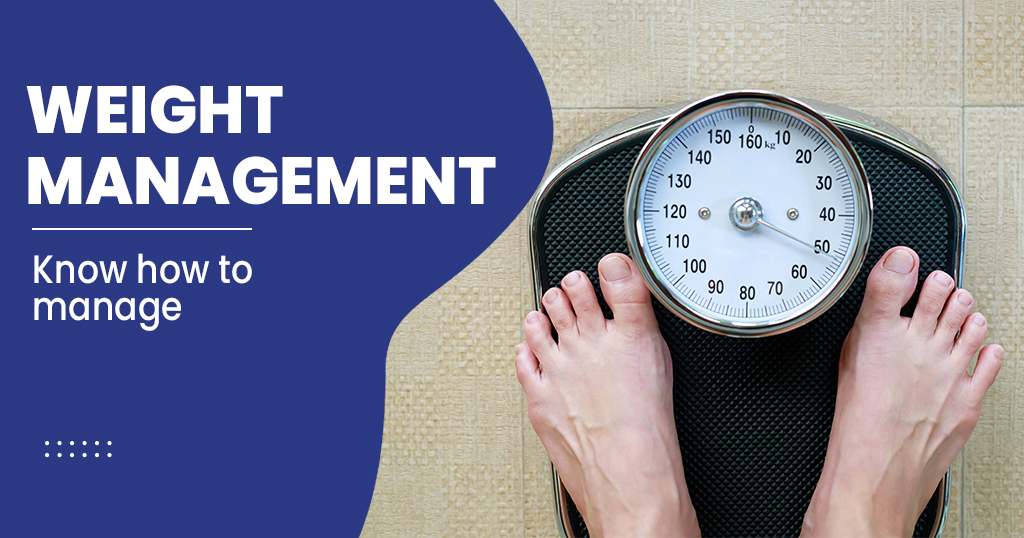Introduction
Weight control is the process of maintaining a healthy weight through a combination of healthy eating habits, physical activity, and lifestyle changes. In today's society, there is an increasing concern about the prevalence of overweight and obesity, which has been linked to numerous health problems, including heart disease, diabetes, and certain types of cancer. In this article, we will discuss the most important topics related to weight control.
1. Healthy Eating Habits
One of the most important aspects of weight control is maintaining a healthy diet. This means consuming a balanced diet that is high in nutrients and low in calories. A healthy diet should include a variety of fruits, vegetables, whole grains, lean proteins, and healthy fats. In addition, it is important to avoid processed and sugary foods that are high in calories and low in nutrients.
Another important aspect of healthy eating habits is portion control. It is easy to overeat when portions are too large, so it is important to pay attention to portion sizes and eat slowly to allow the body to feel full. Additionally, it is important to stay hydrated by drinking plenty of water and other low-calorie beverages.
2. Physical Activity
Physical activity is another key component of weight control. Regular exercise can help burn calories, build muscle, and improve overall health. It is recommended to engage in at least 30 minutes of moderate-intensity exercise most days of the week. This can include activities such as walking, cycling, swimming, or dancing.
Strength training is also important for weight control, as it can help build lean muscle mass, which increases the body's metabolism and helps burn more calories at rest. Resistance training exercises, such as weight lifting, can also help improve bone density and reduce the risk of osteoporosis.
3. Lifestyle Changes
In addition to healthy eating habits and physical activity, there are other lifestyle changes that can help with weight control. One important lifestyle change is getting enough sleep. Lack of sleep has been linked to weight gain, as it can disrupt hormone levels and increase hunger and appetite. It is recommended to get at least 7-8 hours of sleep per night.
Reducing stress is another important lifestyle change that can help with weight control. Stress can lead to emotional eating, which can contribute to weight gain. Finding healthy ways to manage stress, such as through exercise, meditation, or social support, can help reduce the risk of emotional eating.
4. Weight Loss Programs
For some people, weight loss programs may be necessary to achieve weight control. These programs can provide support, guidance, and accountability, which can be helpful for those who struggle with healthy eating habits and physical activity. There are many different types of weight loss programs, including commercial programs, such as Weight Watchers or Jenny Craig, and medically supervised programs, which may include prescription medications or surgical interventions.
However, it is important to note that not all weight loss programs are safe or effective. Some programs may be expensive, require restrictive diets or supplements, or promote unhealthy behaviors. Before starting a weight loss program, it is important to do research and consult with a healthcare professional to ensure that it is safe and appropriate for individual needs.
Conclusion
Weight control is an important aspect of overall health and wellness. Maintaining a healthy diet, engaging in regular physical activity, and making lifestyle changes, such as getting enough sleep and reducing stress, can all contribute to weight control. For those who struggle with weight control, weight loss programs may be necessary, but it is important to choose safe and effective programs that promote healthy behaviors. By incorporating these strategies into daily life, individuals can achieve and maintain a healthy weight and reduce the risk of obesity-related health problems.
12 tips to help you lose weight
1. Do not skip breakfast
Skipping breakfast will not help you lose weight. You could miss out on essential nutrients and you may end up snacking more throughout the day because you feel hungry.
2. Eat regular meals
Eating at regular times during the day helps burn calories at a faster rate. It also reduces the temptation to snack on foods high in fat and sugar.
3. Eat plenty of fruit and veg
Fruit and veg are low in calories and fat, and high in fibre – 3 essential ingredients for successful weight loss. They also contain plenty of vitamins and minerals.
4. Get more active
Being active is key to losing weight and keeping it off. As well as providing lots of health benefit exercise can help burn off the excess calories you cannot lose through diet alone.

5. Drink plenty of water
People sometimes confuse thirst with hunger. You can end up consuming extra calories when a glass of water is really what you need.
6. Eat high fibre foods
Foods containing lots of fibre can help keep you feeling full, which is perfect for losing weight. Fibre is only found in food from plants, such as fruit and veg, oats, wholegrain bread, brown rice and pasta, and beans, peas and lentils.
7. Read food labels
Knowing how to read food labels can help you choose healthier options. Use the calorie information to work out how a particular food fits into your daily calorie allowance on the weight loss plan.
8. Use a smaller plate
Using smaller plates can help you eat smaller portions. By using smaller plates and bowls, you may be able to gradually get used to eating smaller portions without going hungry. It takes about 20 minutes for the stomach to tell the brain it's full, so eat slowly and stop eating before you feel full.
9. Do not ban food
Do not ban any foods from your weight loss plan, especially the ones you like. Banning foods will only make you crave them more.10. Do not stock junk food
To avoid temptation, do not stock junk food – such as chocolate, biscuits, crisps and sweet fizzy drinks – at home. Instead, opt for healthy snacks, such as fruit, unsalted rice cakes, oat cakes, unsalted or unsweetened popcorn, and fruit juice.
11. Cut down on alcohol
A standard glass of wine can contain as many calories as a piece of chocolate. Over time, drinking too much can easily contribute to weight gain.
12. Plan your meals
Try to plan your breakfast, lunch, dinner and snacks for the week, making sure you stick to your calorie allowance. You may find it helpful to make a weekly shopping list.




No comments:
Post a Comment